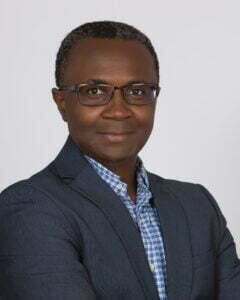SER Presidents Message
 I continue to bask in the afterglow of the 2022 annual meeting, our first in-person meeting since our last in 2019. I hope you do too. By many accounts, it was a successful meeting. We reconnected with friends, mentors, mentees, and collaborators in person as responsibly as we could, given the ongoing COVID-19 pandemic. Thank you all for making the annual meeting safe, memorable, and edifying. Nonetheless, we must recognize that the COVID-19 pandemic prevented some members from joining our yearly in-person meeting. The executive committee is looking into making our events and programs through the year as accessible to all as feasible and affordable.
I continue to bask in the afterglow of the 2022 annual meeting, our first in-person meeting since our last in 2019. I hope you do too. By many accounts, it was a successful meeting. We reconnected with friends, mentors, mentees, and collaborators in person as responsibly as we could, given the ongoing COVID-19 pandemic. Thank you all for making the annual meeting safe, memorable, and edifying. Nonetheless, we must recognize that the COVID-19 pandemic prevented some members from joining our yearly in-person meeting. The executive committee is looking into making our events and programs through the year as accessible to all as feasible and affordable.
Not to put too much pressure on us, but we face the unfinished challenge of COVID-19, which is now worsened by new threats from monkeypox and poliomyelitis. Furthermore, we must deal with deteriorating reproductive health rights in the US, climate change threats to our health, homophobia, transphobia, racism, violent policing, disinformation, misinformation, social disorder, and wars. These threats often intersect to affect the most vulnerable among us. To make matters worse, parts of society are increasingly at odds with science and the work of epidemiologists and other scientists. Our work has become more complicated. From generating the evidence for action to training the next generation of public health practitioners to science communication and more, we have much to do. I remain optimistic that epidemiology will rise to the occasion. We must continue to do our best and collaborate with all public health and other disciplines. In doing so, we should prioritize health equity and justice.
The executive committee continues to prioritize support for students and early career epidemiologists, impactful involvement of and mentoring from advanced career members, making SER a place for pushing the frontiers of epidemiology and reflecting the rich diversity of our field. Representation matters. Diverse and inclusive representation in SER’s leadership, programming, and activities remains essential. We strongly encourage and support active engagement from all members, including running for office. If they want, members will have the opportunity to list their pronouns on their name tags at our annual meetings. We are interested in making our meetings more welcoming, especially for those who have been historically marginalized or minoritized. We are also working hard to provide a platform for epidemiologists from outside the US to participate more fully at SER. A recent article in our journal, AJE, details some work on expanding the representation of Mexican epidemiologists and collaboration at SER. There are also plans to increase representation from other parts of the world. We will continue providing meaningful programming opportunities and resources for powerful local and global collaborations, mentorship, and training. Furthermore, we are excited to expand the awards for recognizing excellence in more areas of epidemiology by introducing the Roger Detels Distinguished Researcher Award in Infectious Disease Epidemiology, sponsored by the Department of Epidemiology at the UCLA Fielding School of Public Health.
As I look forward to serving as SER president for 2022–2023, I humbly ask for all members’ support and welcome ideas for making the most of SER. Please contact me (arah@ucla.edu) or SER Executive Director Sue Bevan (sbevan@epiresearch.org) with thoughts on critical issues we could tackle as a professional society. As president, I am honored and thrilled to collaborate with all members to ensure SER remains the premiere professional platform for inclusive and consequential excellence in epidemiologic research, training, and service. Let the work continue!
Onyebuchi Arah, SER President
